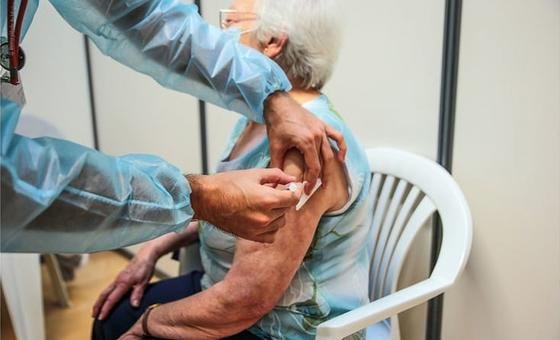The WHO Regional Office for Europe has launched a region-wide protection campaign, saying that coronaviruses such as Covid, influenza and respiratory syncytial virus (RSV) “should be taken seriously” as they are particularly common among older people, pregnant women and people with existing conditions. or past health conditions may prove hazardous to susceptible groups such as those with disease.
WHO regional director Dr. Hans Kluge said that people have developed a ‘collective amnesia’ regarding Covid-19 and this situation is very worrying. While it’s understandable that people, communities and nations want to move on from years of pandemic pain, Covid-19 is far from over, and so are other respiratory viruses.
Center of attention in Europe
Seasonal influenza still kills 72,000 people in 53 countries in Europe and Central Asia, about 20 percent of the global burden, WHO officials said.
“Most of these deaths are preventable,” he said. He said the most vulnerable must be “protected” through vaccination, as it has proven effectiveness in preventing disease and its serious consequences.
Health officials in the WHO European Region, from Cyprus to Moldova and Ireland to Russia, reported more than 278,000 COVID-19 cases and 748 deaths in just 28 days to 22 September.
The United Nations Health Organization says these numbers are higher than in any other WHO region and that the actual figures are likely higher than the estimates.
According to WHO data, since the outbreak began in late 2019, Covid-19 has killed more than 7 million people, with most deaths occurring in the United States (12 million), Brazil (7 million 2 thousand), India (5 million ) 34 thousand) and Russia (4 lakh 3 thousand).
Unexpected pathogens
Dr. Hans Kluge said, “Covid-19 has wreaked havoc in every corner of the planet.
RSV and influenza are expected to spread rapidly in the coming months, especially as people gather indoors more often during cold weather.
This senior WHO official said that countries’ health authorities must continue to strive to protect vulnerable populations. He called for greater investment in public health care to protect overworked health workers.
Dr. Hans Kluge warned of the need for regular and continuous surveillance, saying that new and existing viruses can “destroy health systems, economies and societies” and that we should be fully prepared to deal with an emergency should it arise.
As part of WHO Europe’s public health campaign to prevent the spread of influenza and other respiratory diseases, the UN agency recommends important preventive measures, including staying at home when sick, hand and cough hygiene, and using well-ventilated rooms, including those in the population with weakened immune systems. In these situations, people exposed to respiratory viral infections should wear tight masks in crowded or closed spaces.
doctor Hans Kluge says, “Preventing respiratory viruses is a shared responsibility of governments and the whole of society. Everyone has to play their part in promoting a culture of care and solidarity for vulnerable people.”

